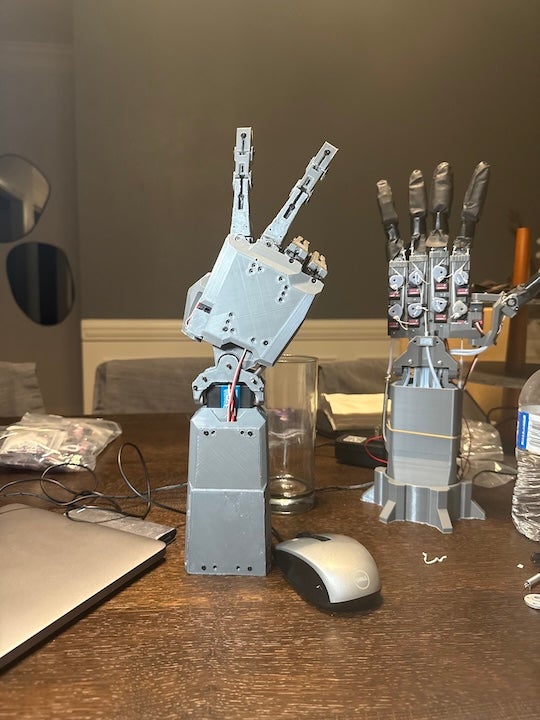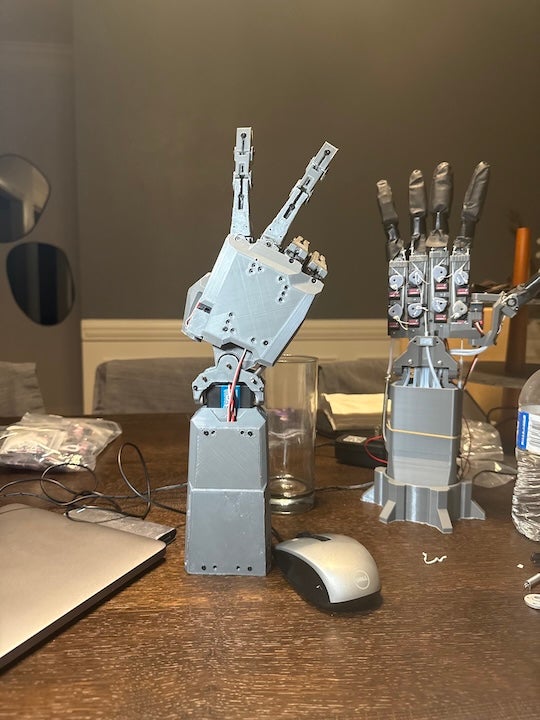Pranai Reddy, a senior studying business management, biochemistry and entrepreneurship, has spent his time at Rice University figuring out how to improve the usability in prosthetic hands and how to give students a hands-on learning experience in venture capital.
He said his passion for this work began in high school while visiting family in rural India, where he saw how losing a limb often meant losing independence, livelihood and dignity. The cost of prosthetics — especially functional ones — was far beyond reach for most.

Determined to make a difference, Reddy and his sister took an unconventional approach. “We got scrappy,” he said. Utilizing their high school networks, they raised funds and within six months provided 100 low-cost prosthetic limbs to amputees in rural India. The initiative earned him honors from the Texas House of Representatives, but more importantly, it changed his career trajectory.
“I entered Rice wanting to pursue medical device innovation. I liked bioengineering, but with exposure to other disciplines on campus, one thing led to another, and I landed on the path I feel most confident in — building technology that people will actually use,” Reddy said.
Now, Reddy is the founder of Morph Labs, a startup developing artificial intelligence-powered prosthetic hands with unparalleled dexterity and ease of use through a noninvasive brain-computer interface. Unlike most prosthetics that rely on electromyography (EMG) — which requires muscle contractions to trigger a small set of preprogrammed grips — Morph Labs is pioneering an EEG (electroencephalogram) that interprets brain signals directly from the motor cortex. This eliminates muscle fatigue while giving amputees a fluid, intuitive way to control their prosthetic hand.
“The problem with current prosthetics is that they either lock amputees into rigid, preset grips or demand exhausting physical effort,” Reddy said. “We’re removing those limitations — we’re making a prosthetic that moves as naturally as a real hand.”
Most prosthetic hands on the market today have just 5-10 degrees of freedom (how independently each part of the hand can move). The human hand has 27. Morph Labs’ prototype already boasts 19 degrees of freedom, making it one of the most dexterous prosthetic hands in development.
But the company isn’t just focused on creating the best standalone prosthetic — it’s developing technology that can retrofit and upgrade existing prosthetics.
“We’re designing a Ferrari,” Reddy said, “but we can swap out the engine for a Toyota and the body for a Honda.” In other words, Morph Labs’ intuitive control systems can be integrated into existing prosthetics, and its dexterous hand can retrofit onto EMG-based devices, dramatically expanding accessibility while still delivering best-in-class performance.
With this hybrid approach, Morph Labs is poised to revolutionize both the premium prosthetic market and global health applications, ensuring that amputees worldwide — from those with top-tier devices to those with basic setups — can benefit from the next generation of prosthetic technology.
While Reddy is laser-focused on advancing prosthetic technology, he hasn’t stopped at building just one impactful venture.
In fall 2023, he and co-founder Jacob Straube launched the Rice Student Venture Fund (RSVF), a student-run venture capital initiative that now manages $2 million in assets under management to invest in the best Rice-affiliated startups and beyond.
“Building a company is one side of the equation, but understanding how startups secure funding is equally critical,” Reddy said. “We’re not just writing checks — we’re building an ecosystem that connects students, professors, alumni and investors to back the strongest founders we can get our hands on.”
RSVF has rapidly expanded to 26 team members and recently made its first investment in Veloci Running, a performance running shoe company founded by Rice student Tyler Strothman. The team is focused on sourcing and executing deals and will be hosting a large-scale venture event later this semester, bringing together investors, founders and industry leaders to cement Rice’s position as a major player in the startup space.
As Reddy nears graduation, he said he remains committed to a future where technology isn’t just advancing but enabling people to live better lives. Whether through building groundbreaking prosthetics or fostering the next generation of entrepreneurs, he’s proving that ambitious ideas, when executed with the right mix of vision and persistence, can reshape industries and change lives.
To learn more about Morph Labs, visit morphlabs.tech
To learn more about the RSVF, visit ricestudentventurefund.co

